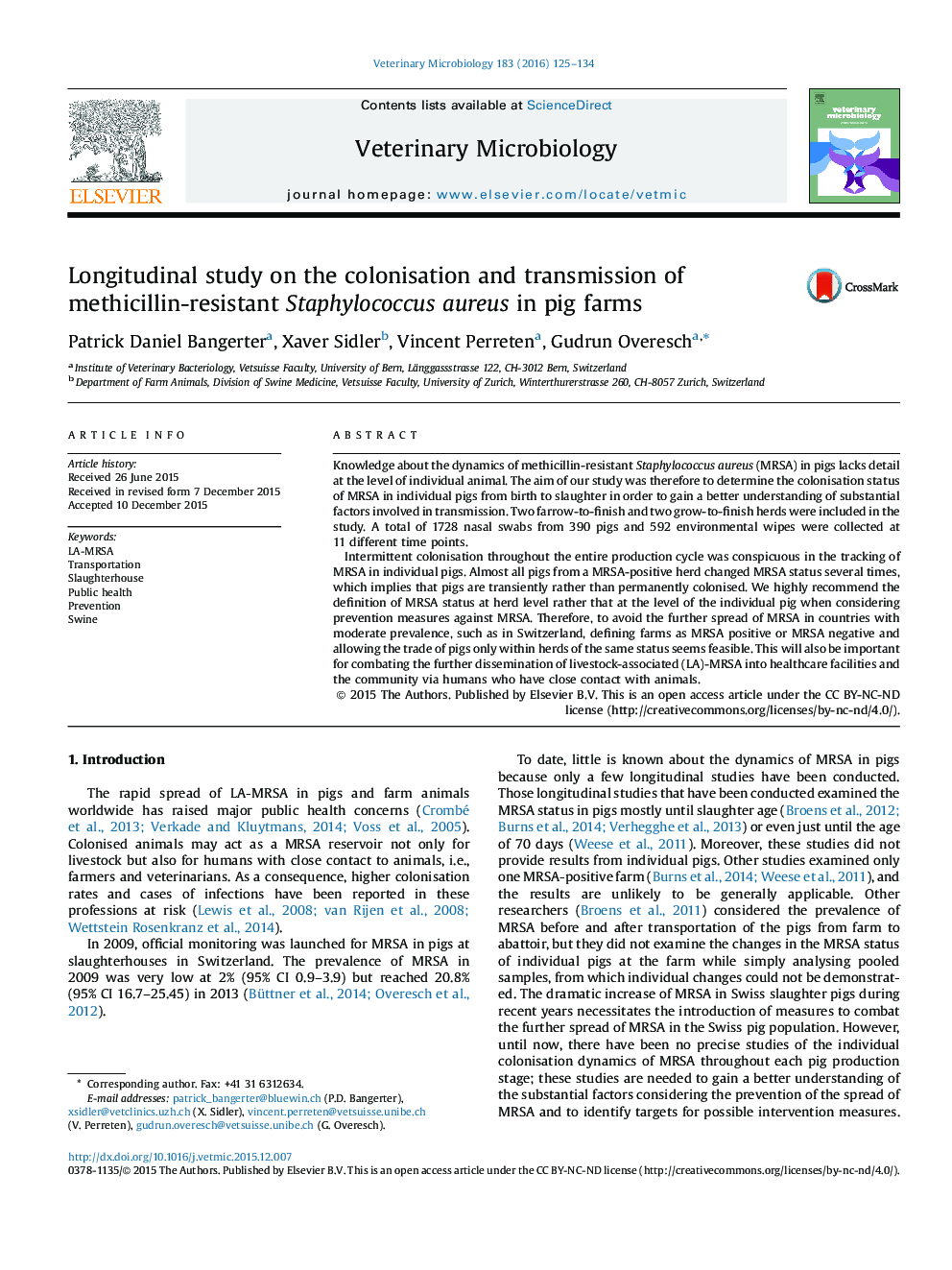| Article ID | Journal | Published Year | Pages | File Type |
|---|---|---|---|---|
| 5799789 | Veterinary Microbiology | 2016 | 10 Pages |
â¢MRSA status changes repetitively during a production cycle in the individual pig.â¢Repeated MRSA contamination instead of real colonisation is proposed.â¢Defining MRSA status at herd level when considering prevention measures.â¢Trading animals only within herds of the same MRSA status prevents further spread.
Knowledge about the dynamics of methicillin-resistant Staphylococcus aureus (MRSA) in pigs lacks detail at the level of individual animal. The aim of our study was therefore to determine the colonisation status of MRSA in individual pigs from birth to slaughter in order to gain a better understanding of substantial factors involved in transmission. Two farrow-to-finish and two grow-to-finish herds were included in the study. A total of 1728 nasal swabs from 390 pigs and 592 environmental wipes were collected at 11 different time points.Intermittent colonisation throughout the entire production cycle was conspicuous in the tracking of MRSA in individual pigs. Almost all pigs from a MRSA-positive herd changed MRSA status several times, which implies that pigs are transiently rather than permanently colonised. We highly recommend the definition of MRSA status at herd level rather that at the level of the individual pig when considering prevention measures against MRSA. Therefore, to avoid the further spread of MRSA in countries with moderate prevalence, such as in Switzerland, defining farms as MRSA positive or MRSA negative and allowing the trade of pigs only within herds of the same status seems feasible. This will also be important for combating the further dissemination of livestock-associated (LA)-MRSA into healthcare facilities and the community via humans who have close contact with animals.
